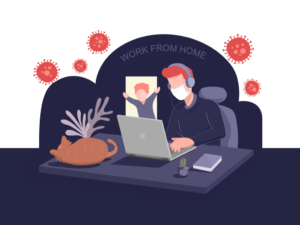This is the first of a periodic series of articles that explore how and why we fall in love and how something so wonderful can sometimes feel so horrible.
When you first fall in love you are literally out of your mind. Your brain is bathed in all of these wonderful neurochemicals and hormones like oxytocin, dopamine and vasopressin that just make everything feel so good about your new found love. It’s really a wonderful feeling.
When you first met, you probably couldn’t get enough of each other and would spend long nights talking about yourself and making every effort to really understand this fascinating new person that seems to be the answer to your dreams.
On a biological level you spend all this time trying to understand the other because your brain is a problem solving machine and when you meet someone new and exciting it’s like a bright shiny toy that your brain wants to figure out.
But then time goes on, the chemicals wear off a bit and your partner starts to lose his or her novelty to your brain. At this point your brain starts to think, “I’ve got this person figured out” and begins to use mental shortcuts in dissecting what your partner says.
Right around here your brain also begins assign labels to your partner. Most of us have anywhere between five and fifteen labels for our partner, some of them nice, some of them not so nice. And everything that happens gets filtered through these labels. Chances are that you are in crisis right now in part because you’ve been using more of the negative labels than the positive ones.
This is normal. We spend a lot more time on autopilot than we are aware of. If your conscious brain had to process every single thing that happened, it would soon go into overload, so we spend most of our lives using mental shortcuts or labels.
How much are we on autopilot? A recent study indicated that the conscious processing part of your brain uses only 2 – 3% of the energy being utilized by your whole brain! Think about that. It means that at any given moment in time a miniscule amount of brainpower is being devoted to conscious thought.
From a processing perspective this is a very effective use of brainpower. From a relational standpoint this can be a disaster because it forces you to use labels and mental short cuts in order to preserve processing power.
This means the feelings you develop over time for your partner are based on the way you interpret his or her intentions and, remember; your interpretations are based upon your experiences in life. In short, the labels and shortcuts you use often have more to do with your past that you are projecting onto your partner than what his or her true intentions are.
Here’s the paradox: the longer you know someone, especially a romantic partner, the less you probably really know about them because your brain thinks it has this person figured out and just needs to place him or her into a category based on your labels. Instead of seeing the person for who s/he really is and what their true motivations are, you develop a caricature of that person based upon your labels or mental shortcuts.
Two Questions to Ponder:
1) What labels do you use for your partner? Take some time and really think about it. Make the list as long and comprehensive as possible, including both positive and negative labels.
2) Which five labels do you find yourself using most frequently?
Dr. Joe James
6917 Arlington Rd.
Suite 216
Bethesda, MD 20814
310-657-1144
ABOUT DR. JOE
I’ve been helping individuals and couples find new ways since 1995 and been interviewed by Newsweek, The Wall Street Journal, The Washington Post, Good Housekeeping and NPR. I offer day, evening, weekend and Skype/Facetime appointments.
I believe that no two individuals or couples are alike and use a multi-modal approach specifically tailored for who you are and what you’re struggling with. You’ll find me to be warm, direct, supportive and as someone who uses a practical approach to cut through all the clutter that has been holding you back from living your full potential. Life doesn’t have to feel so hard, call today to learn more!





